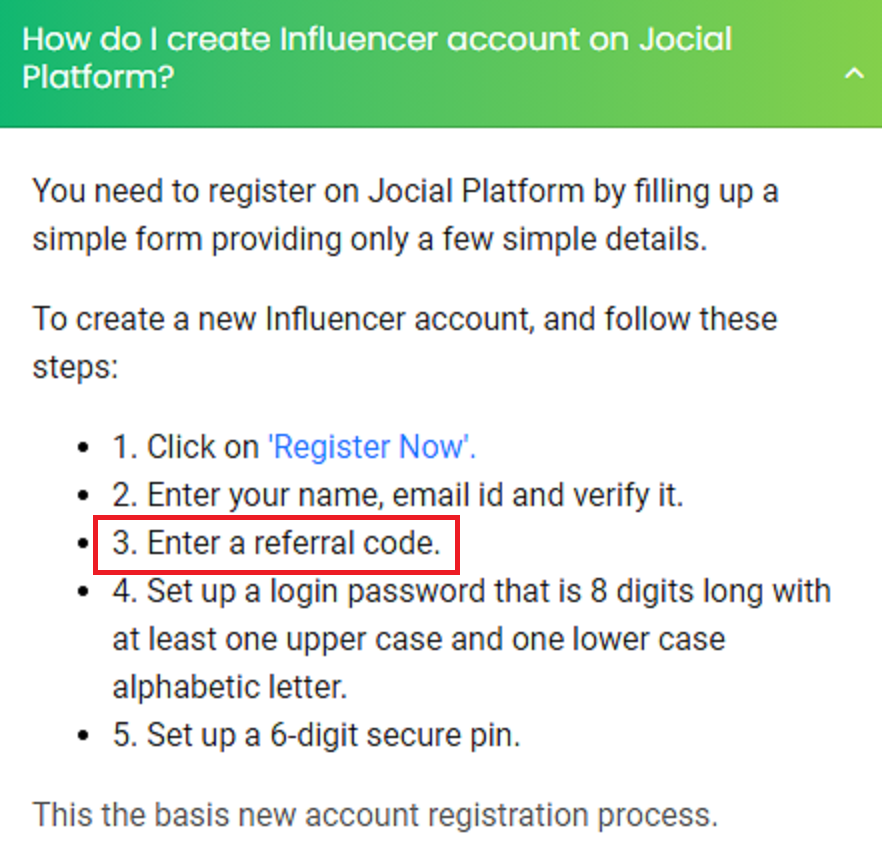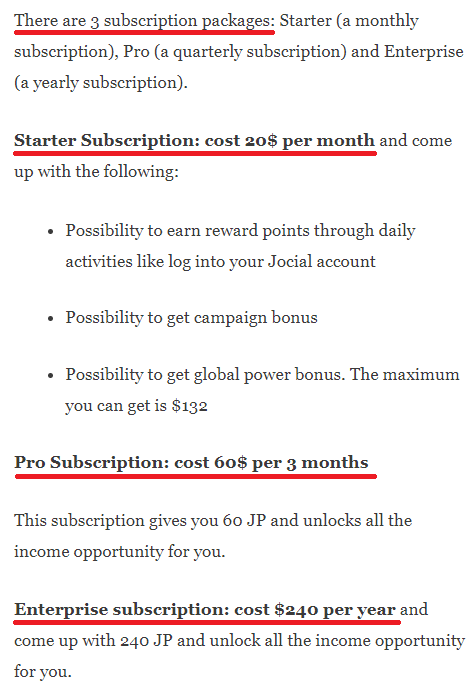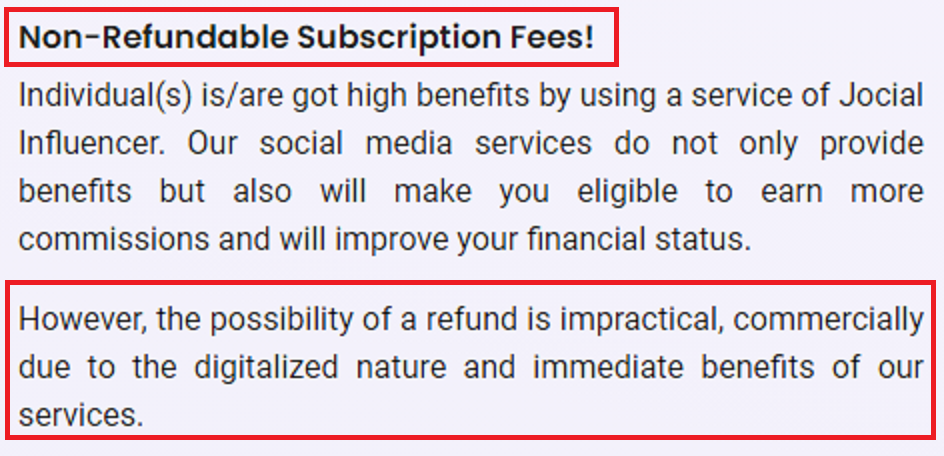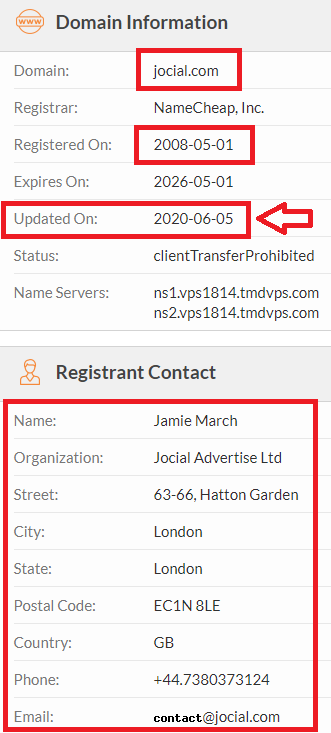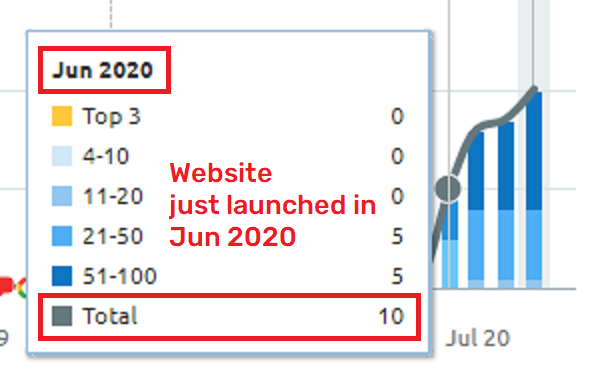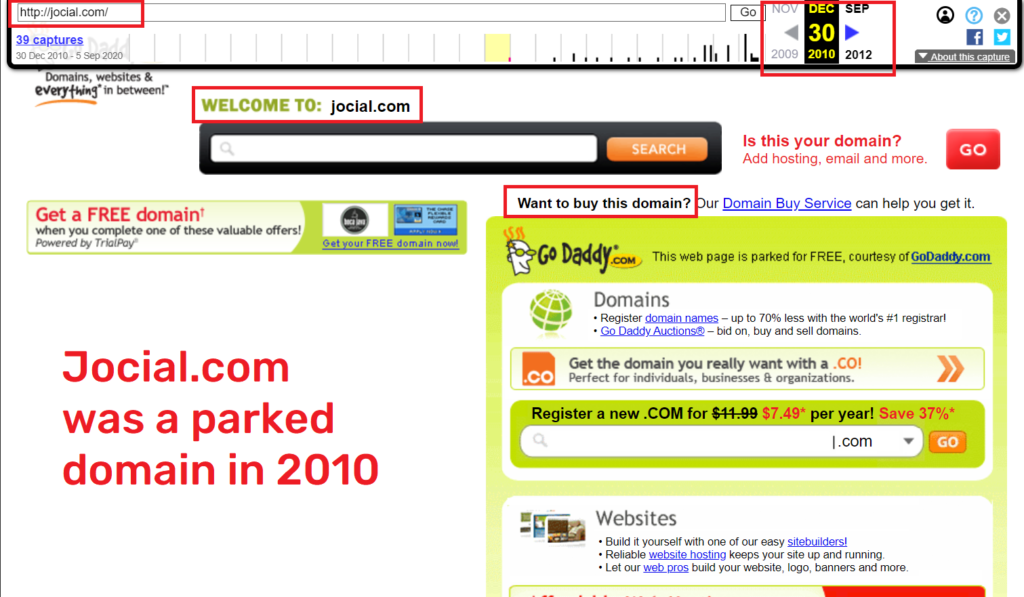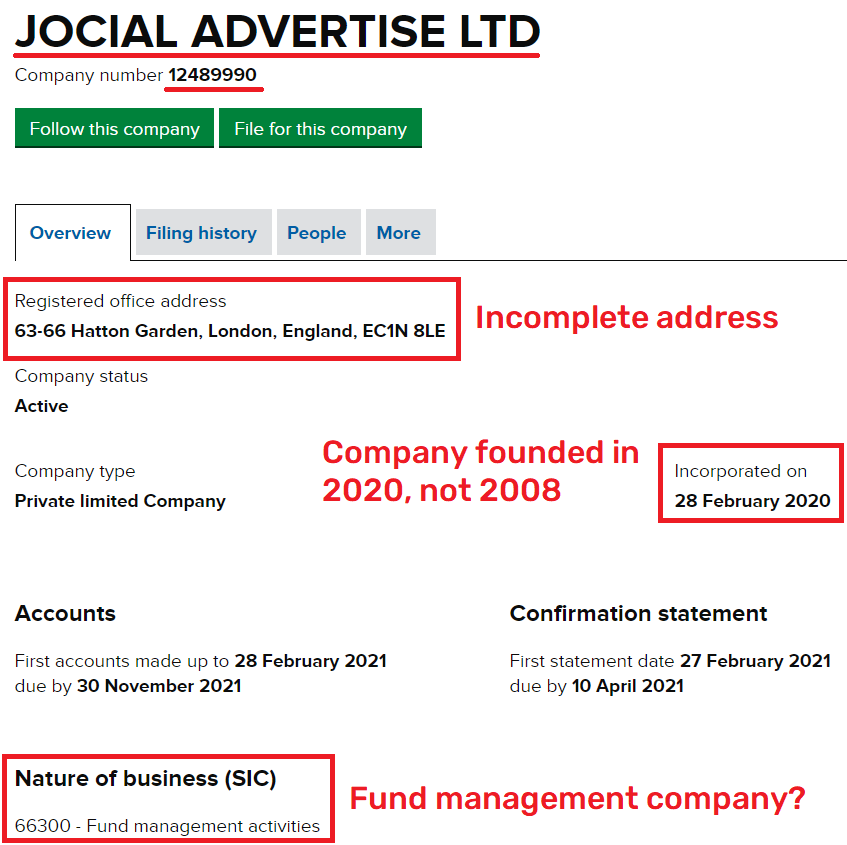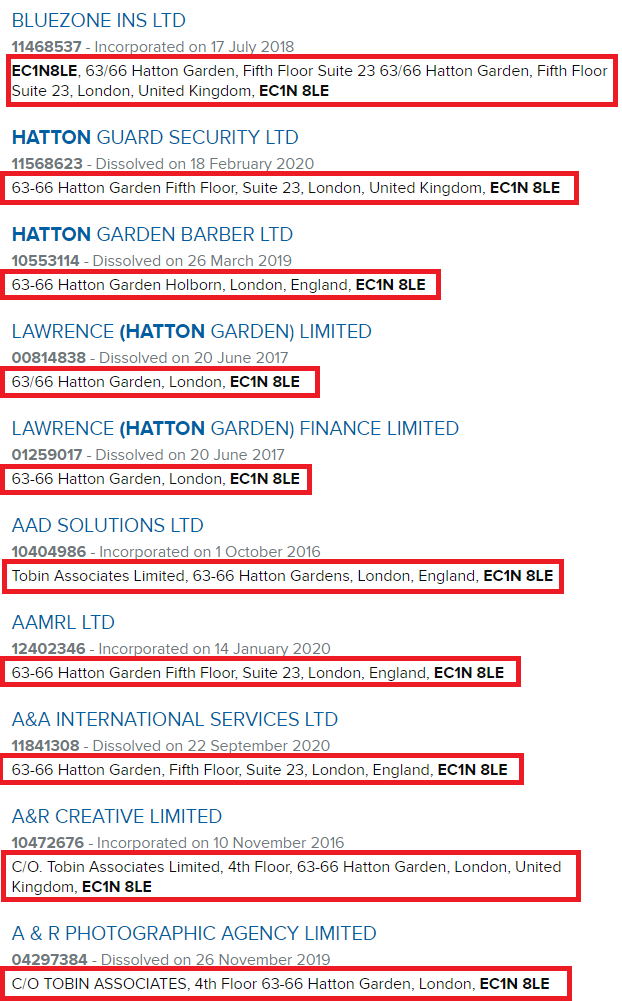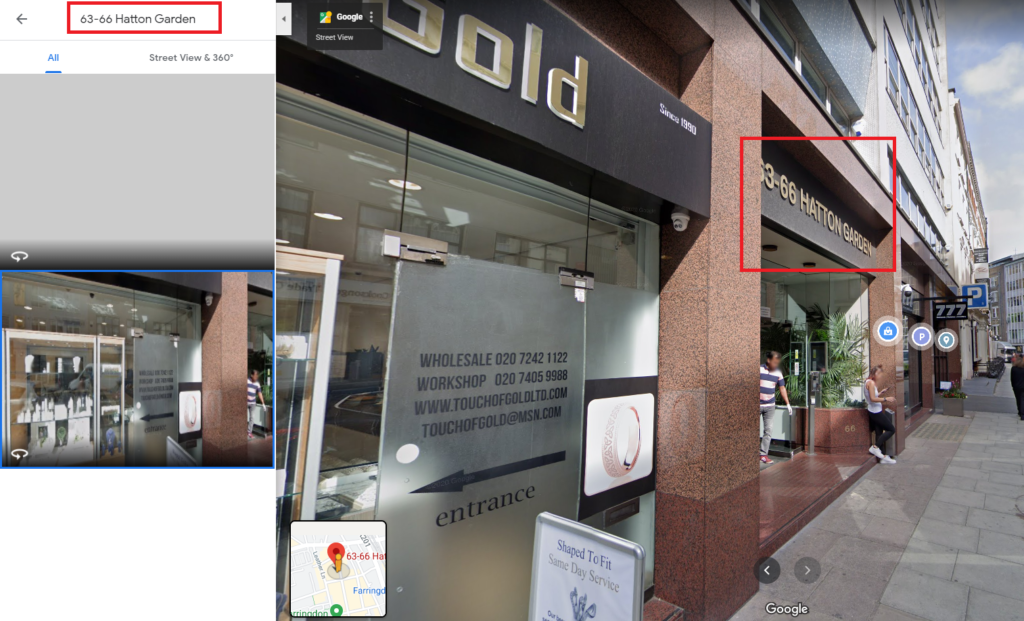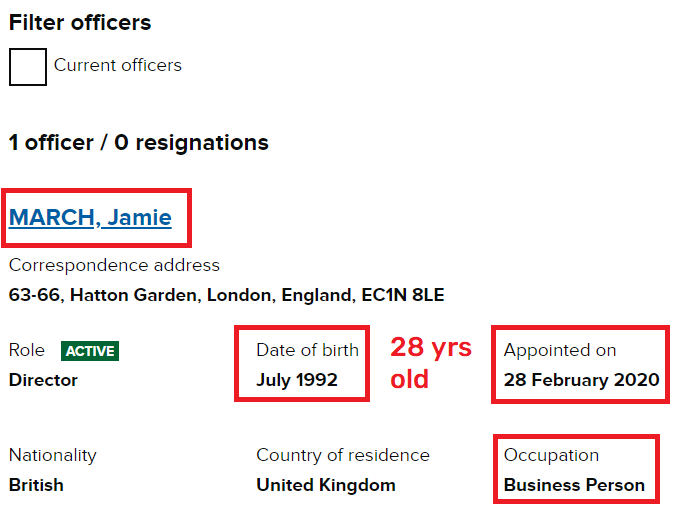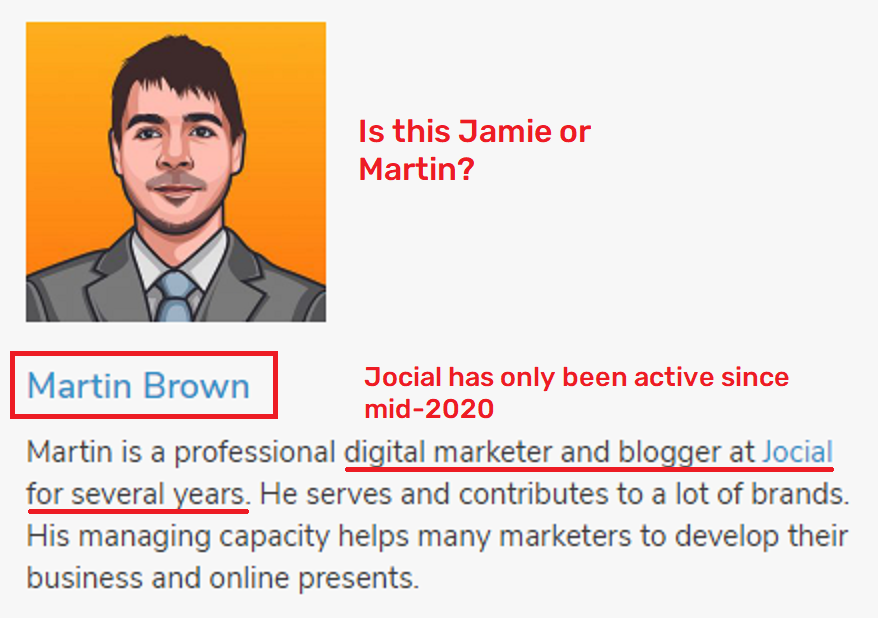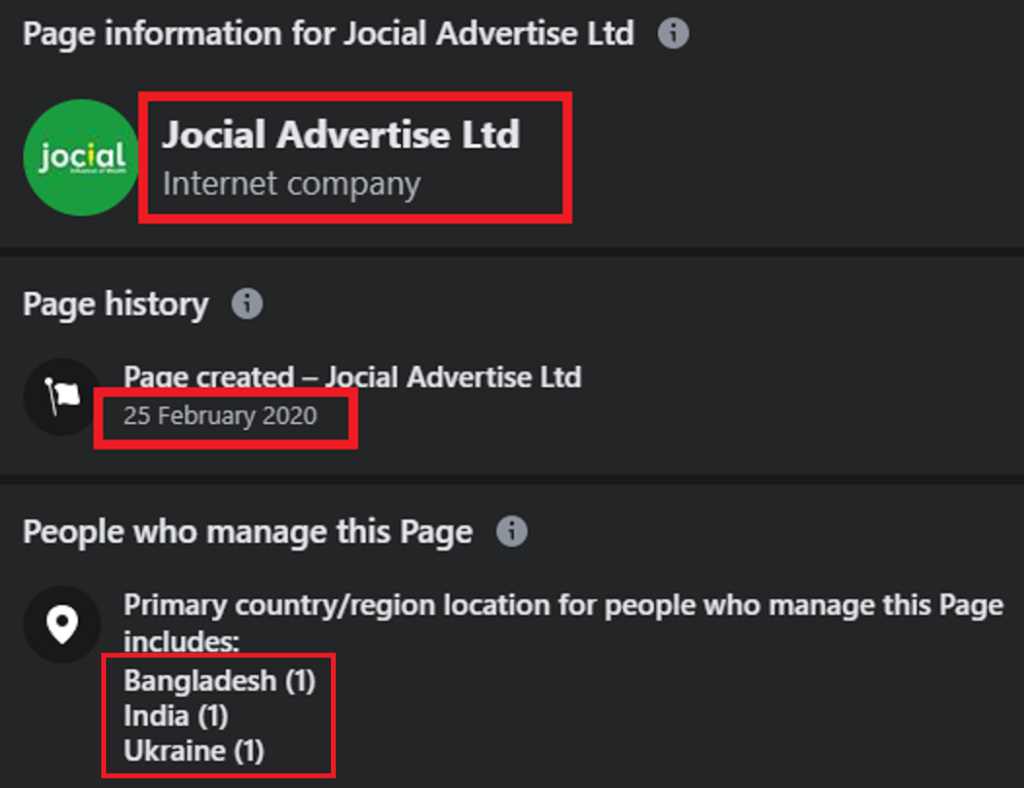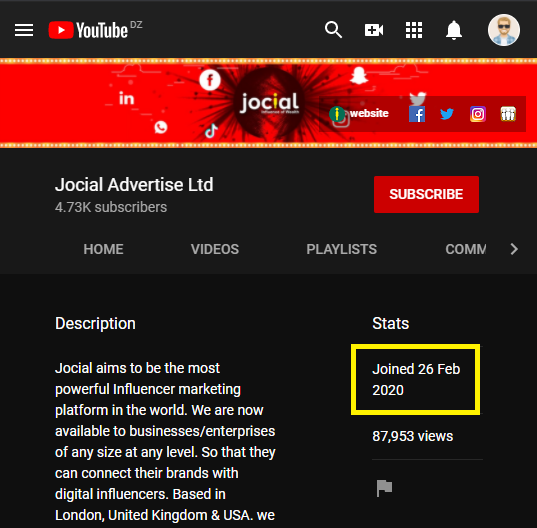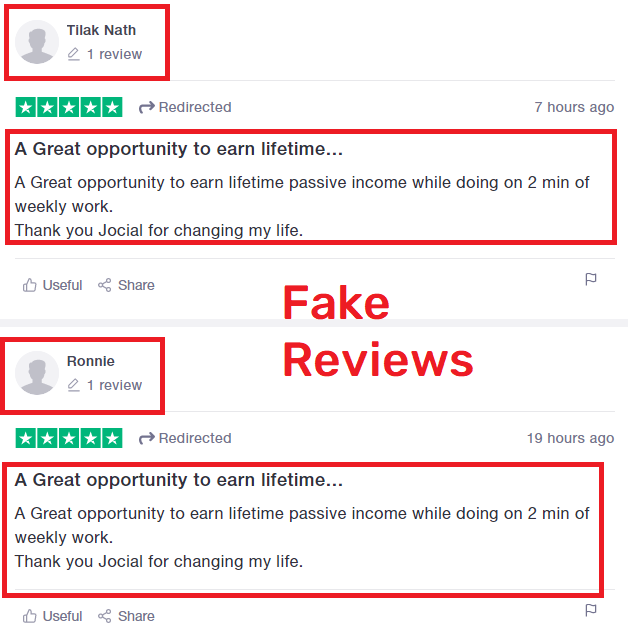Website Name
jocial.com
Website Type
Influencer marketing platform
Is Jocial Fake or Real?

Fake
Why is Jocial Fake?
Jocial is a website that claims to be an influencer marketing platform where users can earn by posting on social media.

Though it is not clearly mentioned on the website, Jocial is actually a multi-level marketing company (MLM) company. This is because new users cannot join without the referral code of existing members. Further, there is a non-refundable ‘subscription fee’ that needs to be paid in order to join and earn on the platform. Jocial also provides tiered referral commissions to members. This strongly suggests that Jocial might actually be a Ponzi scheme pretending to be a social media advertising platform, much like SoJob covered previously on this blog.
One of the most dodgy aspects about Jocial is that payments and withdrawals can only be made using Bitcoin. Such transactions are practically impossible to trace and are highly unsafe.
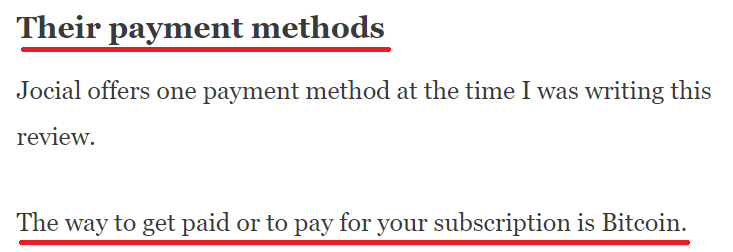
A domain name lookup of the website shows that it was registered on 1st May 2008. However, traffic data and snapshots from the Wayback Machine show that it was a parked domain until June 2020. The domain registration was updated on 5th June 2020, therefore, the website is only around 3 months old in reality. There is a phone number given for the domain registration, but no information could be found for it on Trucaller. This suggests that the phone number may be fake.
Jocial’s website is trying to portray the company as a reputed platform that has been running since 2008. This is clearly a lie, as we can see from the information above.

Another tactic being deployed to position Jocial as credible is the claim that the company is registered in the UK. While it is indeed registered, the compay has been incorporated only on 28th February 2020 under the name of a 28-year-old ‘business person’ named Jamie March. The address used for the registration is incomplete as it only gives a building name and no office number. It was found that several other companies are registered under the same address. The nature of Jocial’s business is listed as ‘fund management activities’. UK registrations are notoriously easy to obtain and such shell companies are used for money laundering.
The website also mentions Jamie March as being the founder of the company. There is no real image of Jamie given. Jnstead, there is just an illustration to represent Jamie. The same illustration has been used for a guest post by Jocial on a blog. However, the author’s name alongside the image is given as Martin Brown. No online profile of Jamie March could be found, which is highly suspicious for an ‘internet entrepreneur’. This begs the question of whether Jamie March is a real person at all.
It is also interesting to note that the article was published in July 2020, which is around the time Jocial’s website actually went live.
On the FAQ page of the website, Jocial has a question dedicated to clarify that it is ‘legitimate’ and has ‘offices all over the world’. However, not a single office address has been provided on the website. It also automatically rings alarm bells whenever a company goes out of its way to state that it is indeed legitimate. No real company needs to claim such a thing explicitly.
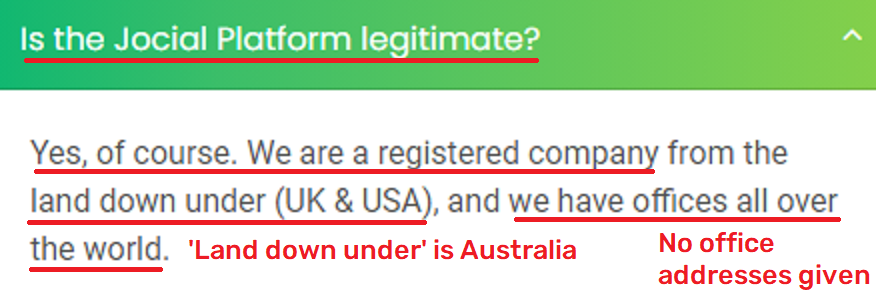
Jocial has a social media presence on Facebook, Twitter, YouTube and LinkedIn. The LinkedIn page is not mentioned on the website and it is a personal profile instead of a company page. This is highly amateurish for a company that claims to be a digital advertising platform. Of course, this profile could be unofficial but there is no such indication.

Jocial’s Facebook, Twitter and Youtube pages were created only in February 2020, once again indicating that the platform has not been active since 2008. The Facebook page admins are from India, Bangladesh and Ukraine. Therefore, the claim that Jocial is based in the UK seems to be a lie.
The only way to contact Jocial is by email. There is no phone number or address provided on the website. The email ID was found to be valid when tested, but it is a catch-all address. This means that the actual email ID given on the website does not exist.
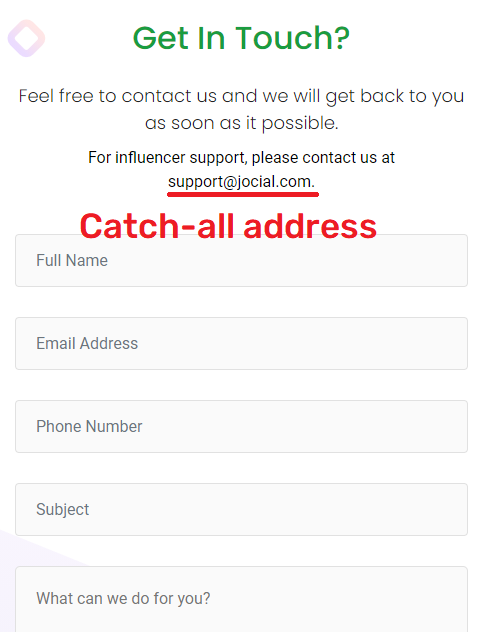
As expected with MLMs, the user reviews on Scamadviser, Web of Trust and TrustPilot are mostly positive. The reviewers are fishing for referrals in order to grow their downlines and reap the commissions. The TrustPilot reviews are clearly fake as they have been written by new accounts with only 1 review each. The content is also the same across multiple reviews.
It seems extremely likely that Jocial is a Ponzi scheme. Users cannot join the platform without a referral code (ie. without joining someone’s downline) and cannot earn unless they pay between $20-$240 for the monthly/quarterly/annual subscriptions. Further, payment and withdrawals on Jocial can only be made using Bitcoin which makes transacting with Jocial a high-risk proposition.
Any company that requires workers to pay before they can start earning has a high possibility of being a scam. The mandatory subscription fee and tiered commission bonus program indicate that Jocial might be a pyramid scheme.
Jocial’s website is filled with lies. The website footer claims that the company has been active since 2008, but evidence suggests that the website has gone live only around June or July 2020. The company registration is valid but the company was incorporated only on 28th February 2020. It uses an incomplete address and the ‘Nature of Business’ is listed as ‘fund management activities’. This suggests that Jocial is registered in the UK merely as a shell company.
The founder of Jocial, Jamie March, does not seem to be a real person as there is no online profile of such an individual, despite Jamie supposedly being a digital marketing professional. The website does not contain a photograph of Jamie and only uses an illustration. The same illustration has also been used alongside the name Martin Brown in a blog guest post by Jocial.
The social media profiles of Jocial have all been created in February 2020 and the Facebook page is operated from India, Bangladesh and Ukraine. Therefore, the claim that Jocial is a UK and USA-based company seems to be a lie.
The contact details provided by Jocial seem to be fake too. The website only provides an email ID that is actually a catch-all address. The phone number provided in the domain registration seems to be fake as there is no information available about it on TrueCaller. Jocial claims that it has offices all around the world but no addresses or even locations have been given.
The user reviews of Jocial are positive but have low credibility. This is because they are either positive reviews written to gain referrals or are fake altogether. It is advisable to avoid subscribing to Jocial, as it seems to be a Ponzi scheme. Real companies do not require users to pay before they can start earning as they can simply deduct their payments from the earnings to be paid to users.
Read the follow-up article on Scamadviser.com: Could Jocial Be a Pyramid Scheme?
How to Get Your Money Back from a Scam
Remember: If something seems too good to be true, it probably is.
If you have been a victim of an employment scam, you can take the following steps:
- Lodge a complaint at the National Cyber Crime Reporting Portal
- Lodge a complaint with PayTM on Twitter, Customer Care or through the app, UPI app such as Google Pay or the Bank with which the company has an account.
- Report the website to Google using the Suspicious Site Reporter extension for Chrome
- Give a low rating to the website on Web of Trust. You can also install their extension for the same.
- File a complaint with the Indian Consumer Complaints Forum
- Write a review on websites such as MouthShut, Scamadviser and TrustPilot.
- Block all numbers of the scammers on TrueCaller, mentioning the words Fake, Fraud or Scam in the name.
- If the company has a listing on Google My Business or Google Maps, file a complaint using the Business Redressal Complaint Form. Also, leave a negative review explaining what kind of experience you had.
Disclaimer: This review is intended for information only and should not be relied on when making financial or business decisions. If you are a website owner and would like to provide clarifications regarding your business and/or website, please get in touch using the Contact Form.

